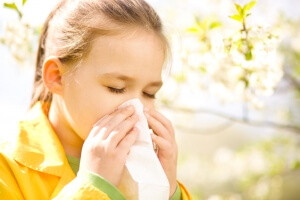It’s glorious summer – but that insidious bug responsible for your runny nose and wheezing cough isn’t showing any sign of going on vacation. 
According to doctors, summer colds can yield many questions from patients: If I have an ordinary cold, why do I feel worse when it’s warm out? Are my persistent symptoms really just seasonal allergies in disguise? Is there any truth to the advice that I should “sweat out” a summer cold – or pop a zinc-infused lozenge – if I want to get well in a hurry? Should I skip a friend’s barbecue if I’ve come down with a case of the sniffles?
Here’s what you need to know about summer colds, along with how they are – and aren’t – different from their cold-weather counterparts.
Are Summer Colds Really Worse Than Winter Ones, or Is it All in My Head?
Short answer? It might be a mixture of both.
 According to Dr. Cameron Wolfe, an infectious disease specialist at Duke University Hospital, individuals are infected with different viruses during the summer months than they are during the winter season.
According to Dr. Cameron Wolfe, an infectious disease specialist at Duke University Hospital, individuals are infected with different viruses during the summer months than they are during the winter season.
“We lump a whole series of viruses under the one umbrella of ‘common cold,’” Wolfe says. “But in fact, there are many different viruses that cause colds. And each virus has a different seasonality.”
During
the winter, the main culprits behind your sneezing and coughing are rhinoviruses. But during the summer, enteroviruses rear their ugly head. Along with the usual coughing, congestion and fever, enteroviruses are associated with a host of other nasty symptoms – diarrhea, sore throat, rashes and body aches, to name a few. And, Wolfe says, enteroviruses can last longer than other viruses – meaning it might take you a little longer than normal to feel 100 percent again if you’re infected.
However, there’s also a mental component to summer colds, says Ronald Eccles, director of the Common Cold Centre at the University of Cardiff in Wales. “We feel a summer cold is worse than a winter cold, as we do not expect to suffer from what most view as a winter ailment when it is sunny and warm in the summer,” he says. “So there is a psychological aspect to the perceived severity of the cold and its impact on our lifestyle.”
Do I Have a Cold, or Do I Have Allergies?
Sneezing, congestion and a runny nose are symptoms that plague individuals with summer allergies – and summer colds. How can you tell the difference?
“A viral infection is going to give you a fever, which you’re not going to get with allergies,” says Dr. Andrew Murphy, an allergist who practices in Downingtown, Pennsylvania. “The other distinguishing factor is that you feel bad with a cold. Your muscles ache, you feel lousy.”
Also, Murphy adds, summer colds have a definite life span – one to two weeks – whereas allergies can stick around for weeks at a time.
Other distinguishing factors? “Itchy, red eyes tend to be associated more with allergies,” says Dr. Aaron Glatt, a spokesman for the Infectious Diseases Society of America. Also, “allergies tend to give you more clear drainage from your nose; colds tend to give you more yellow or greenish type of a drainage.”
This article was originally published on USNews.com






